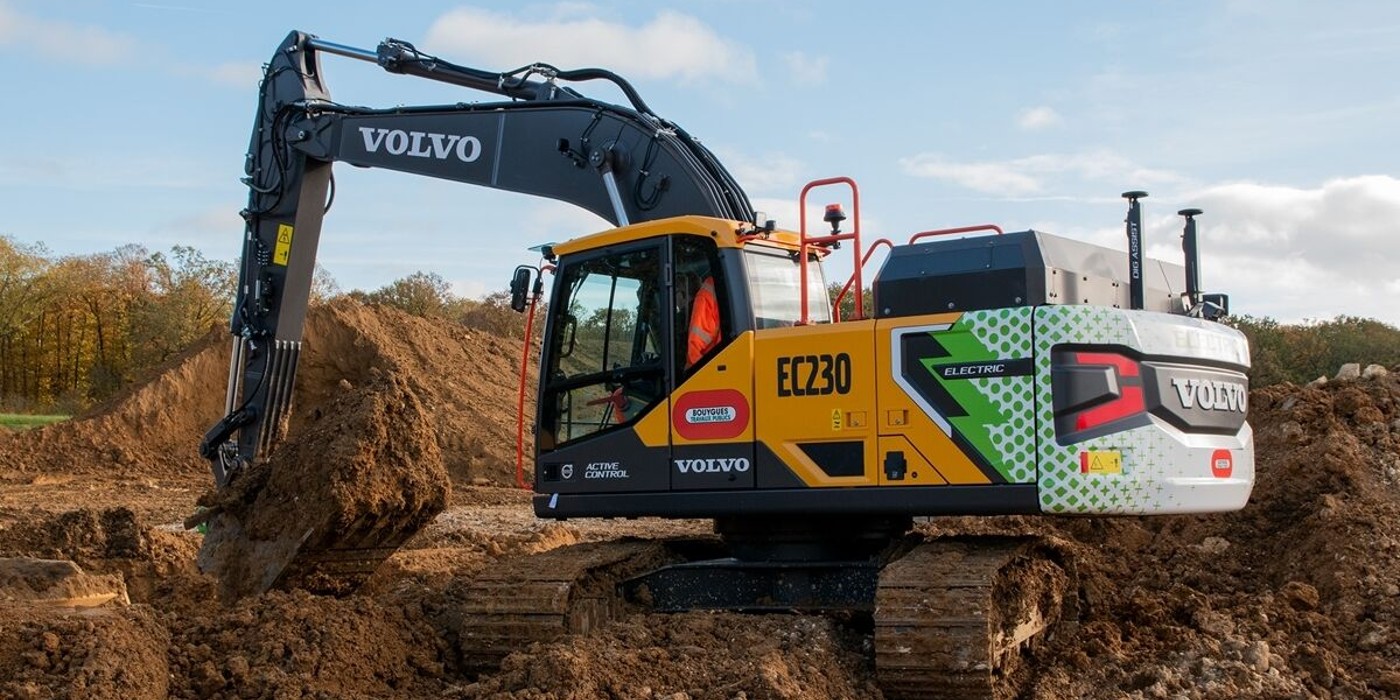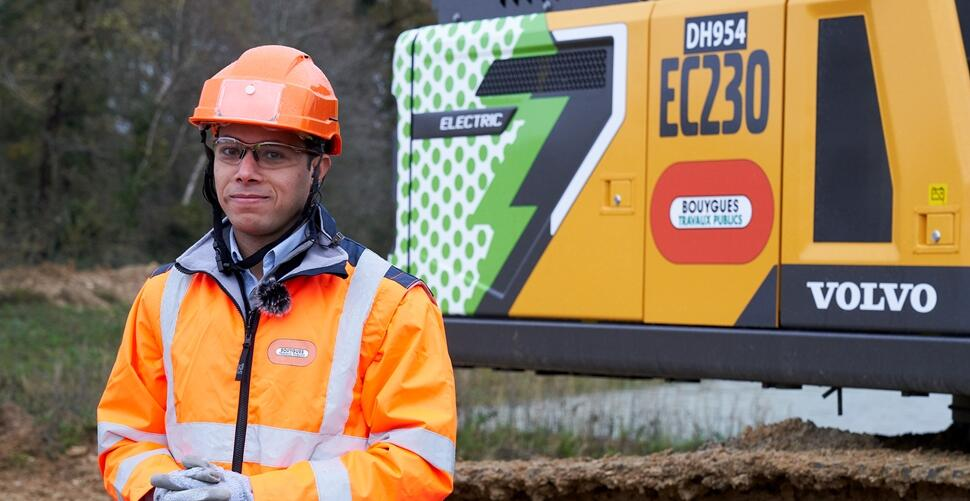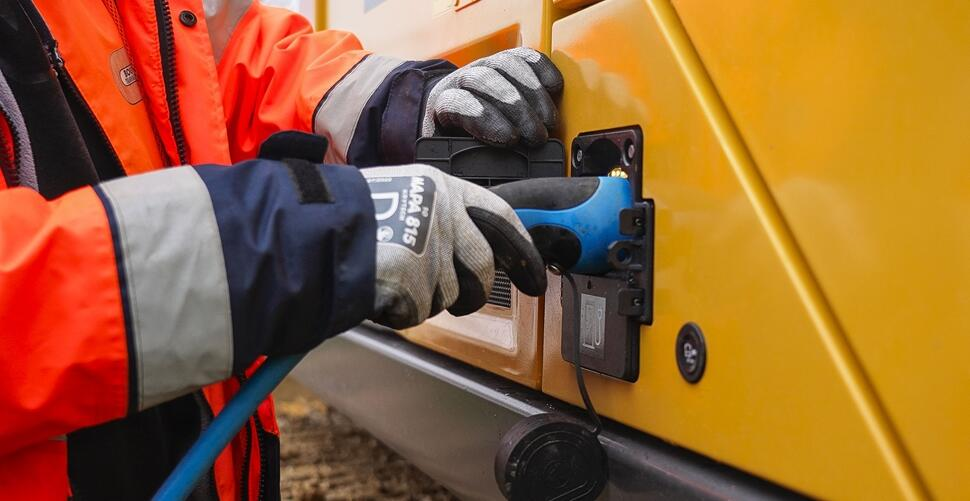[ad_1]

The headline-grabbing EC230 Electric excavator from Volvo CE has officially begun work on a stud farm with Bouygues Travaux Publics Régions France. The job site is part of a larger project that aims to deliver on the promise of an emissions-free construction industry.
Volvo says its EC230 Electric excavator is the first of its kind to be put to work in France, where it is dutifully providing a low noise, zero exhaust emission solution to create trenches and fine tune platforms and embankments during the first phase of large-scale earthworks associated with the construction of a large stud farm in the Poissy region of Paris.
The project itself is a collaboration between Volvo CE and its longtime customer, Bouygues TP, with the goal of creating a sustainable partnership that sets the standard for the decarbonization of heavy-duty construction across France.
“Electrification is one of the five drivers we have identified to reduce our greenhouse gas emissions,” explains Mustapha Nouayti, Project Manager at Bouygues TP. “The EC230 Electric was a natural choice for us because we have been using roughly the same size Volvo model since the start of the operation – so we wanted to ensure we get the same performance, but electric.”
The same performance, but electric

Both Volvo CE and Bouygues TP have announced ambitious climate goals in recent years — goals that both companies claim have been validated by the Science Based Targets initiative (SBTi). For their part, Volvo CE has committed to achieving net zero value chain greenhouse gas emissions by 2040, while Bouygues TP has committed reducing its emissions by 40% across Scope 1 and 2, and a further 20% across Scope 3 by 2030.
In the companies’ official release, Elodie Guyot, Head of Electromobility Solutions, Sales Region Europe at Volvo CE, is quoted saying that, “for (Volvo), it was very important to work with clients like Bouygues TP who share our ambitions and vision towards decarbonized construction sites.”
The stud farm site is located just outside of the urban center of Paris, and has proven to be a fitting location for Bouygues TP’s equipment operators to test out the capabilities of the EC230 Electric. Further, the flexibility to use either AC “slow” charging or DC fast charging through a local EV charging network has enabled the project managers to make use of the EC230 Electric without major adjustments to their workday, while the power and performance offered by the machine has been as good as — or better! — than its diesel counterparts.
DC fast charging makes things easy

“The EC230 Electric has proved to be reliable, comfortable and more responsive – faster even than a combustion engine,” according to operator David Bouloy. “I had no worries when it came to charging because it’s so simple to set up.”
Electrek’s Take
It’s been downplayed in the past, but several electric equipment options “max out” at L2 charging — and that’s true in both the construction and ag spaces. Volvo CE’s close ties with Volvo Cars have given it a leg up on the DC fast charging angle, which will likely give them a competitive edge … for a while, anyway.
FTC: We use income earning auto affiliate links. More.
[ad_2]
Source link
